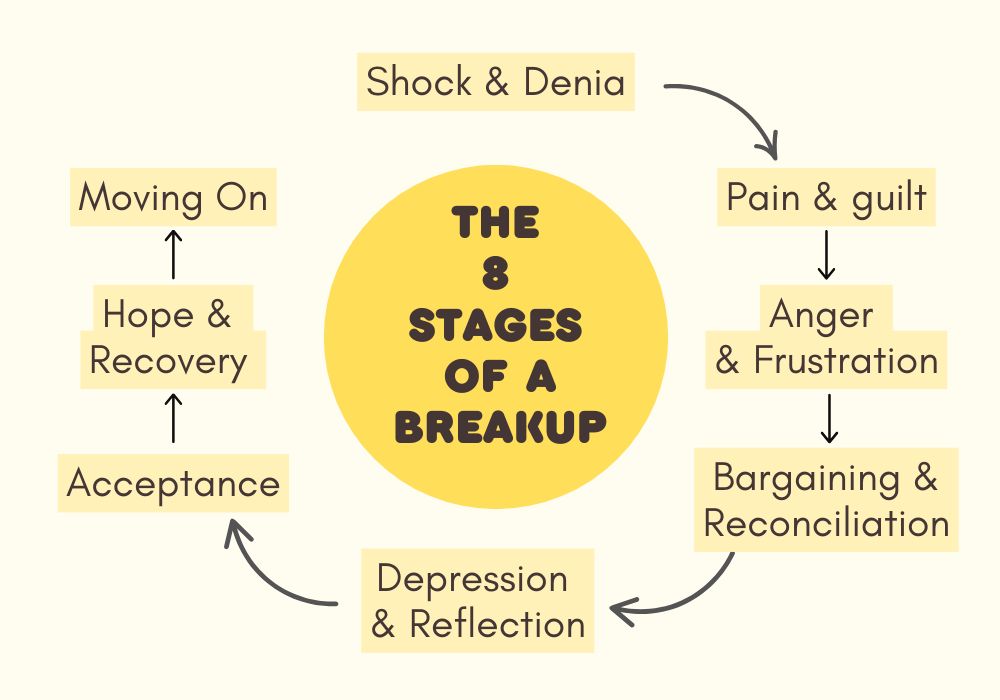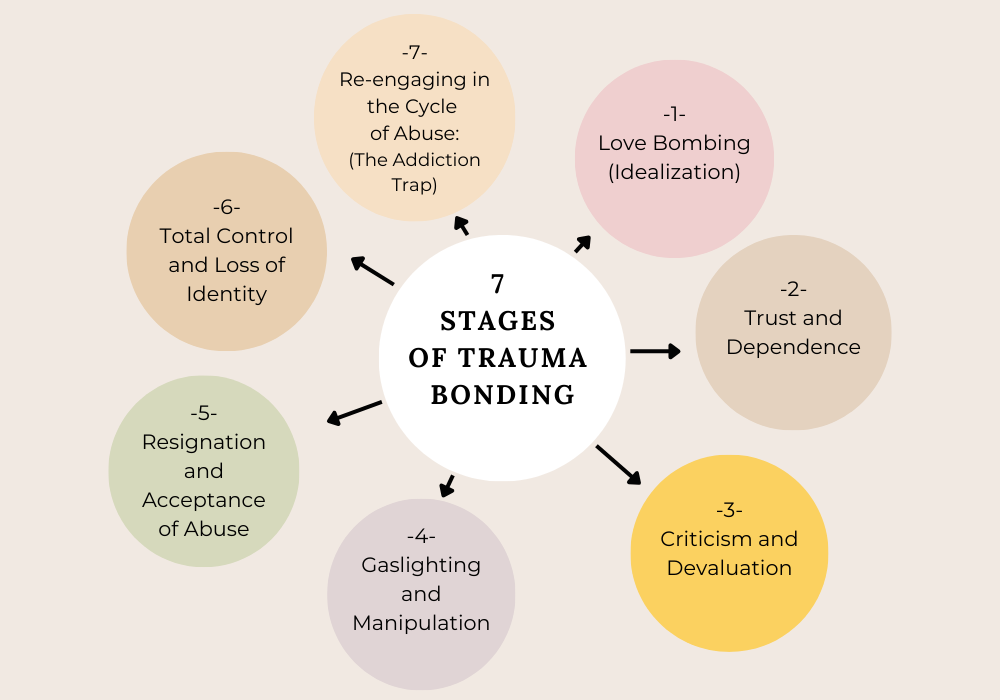What is a scattered mind?
A scattered mind involves our thoughts and focus being disarrayed, making it tough to concentrate on a single task or thought. This state makes our brain jump between various ideas without any apparent purpose. A scattered mind can be prompted by stress, anxiety, or excessive information, negatively impacting productivity. However, it’s crucial to know that many people face a scattered mind, and by employing the right techniques, it can be controlled and utilized for enhanced creativity and efficiency.
How to Manage Your Scattered Mind:
Here are several techniques to assist you in effectively managing your scattered mind:
1-Determine your goals and prioritize them:

If you lack clarity about your objectives, with numerous disorganized tasks in mind, it can easily lead to feeling overwhelmed a constant state of mental chaos, and suffering from a scattered mind all the time.
To calm scattered thoughts, it is highly beneficial to take a moment to sit down and break everything down into smaller, more manageable steps. By creating an action plan and listing each step in order of priority, larger tasks can be transformed into a series of smaller, more easily attainable objectives. This approach simplifies the process and allows for a clearer understanding of the overall goals that need to be accomplished and things will become more manageable.
Related:How to Set Goals and Achieve Them? 10 Tips for Success
Related:16 Simple Ways To Improve Your Mental Clarity
2-Focus on one task at a time:

Avoid rushing to save time, as this will distract your mind from the current activity and shift your attention to future tasks. Remember that your brain can only concentrate on one thought at a time, so keep your focus on what is directly in front of you. Embrace a slow and deliberate approach, and you will experience a sense of accomplishment once you finish each task.
Related:15 Tips to Help you Stay Focused
3-Make a list:

If you’re feeling overwhelmed and you start getting into a scattered-mind mood by everything you have to do or feel you have to do, take a seat and create a list. Write it all down on paper. The act of putting it in writing is an excellent way to organize your thoughts and declutter your mind. It signals to your brain that action has been taken regarding these tasks, ensuring they won’t be lost or forgotten. This allows your brain to shift its focus to other matters.
“All-in-one-digital and printable planner”
4-Break time:

It is not advisable to work continuously for long hours as it can hinder focus. It is recommended to take short breaks between tasks and engage in different activities. These activities can include short exercises, mini walks around the house, or just taking a snack (healthy snack)…
By taking breaks after completing tasks, you can come back to the next task with a refreshed mind.
5-Always move forward:

Always move forward in life, even when you encounter obstacles. If you find yourself facing difficulties or setbacks, do not get discouraged. Instead, take the time to analyze what went wrong and how you can learn from it. Use your scattered mind to connect the dots and find ways to improve. Embrace each challenge as an opportunity to grow and move closer to your goals
6-Journaling:

Journaling is a beneficial habit that can help organize your thoughts and feelings. Initially, it may seem daunting to put your thoughts into words, but once you start articulating them, you’ll find that your mind becomes less cluttered. In your journal, write not only about your to-do list but also express how these responsibilities are affecting you mentally. Take note of your pressures, concerns, questions, and ideas. Make your journaling a way to liberate your scattered mind.
Realted:10 Powerful Tips to start Journaling and make it a Habit
7-Reduce Overstimulation:

Reducing overstimulation can help you effectively manage scattered minds and thoughts. By eliminating distractions and finding activities that help you relax and focus, such as turning off electronics, spending time outdoors, and practicing meditation, you can improve your ability to concentrate. Overstimulation can overwhelm your mind and make it difficult to stay focused on one task at a time. To combat this, it can be beneficial to remove yourself from overstimulating environments and redirect your energy towards more meaningful pursuits.
8-Minimize distraction:

To minimize distractions and increase productivity, it is important to turn off your phone and other electronic devices. By eliminating social media, TV, and internet browsing, you will have more time available to focus on tasks that need to be completed. Often, we underestimate how much time these distractions consume in our lives.
9-Organize your space:

A cluttered space can contribute to a scattered mind, so it’s important to keep your environment organized and tidy. Taking the time to declutter and arrange your space can help minimize distractions and create a more focused and productive atmosphere.
10-Forget about relying on your clock or watch, and don’t stress about time:

Ditch your clock or watch and work in intervals. Instead of constantly checking the time, focus on your tasks without worrying about when you start. Use a timer set for a maximum of 30 minutes to estimate how long each task will take. Once you start the timer, be committed to working until the time is up. Afterward, take a break and repeat the process. By prioritizing your work and avoiding procrastination, you can be productive at any time of the day.
Related:12 Time Wasters You Need to Avoid for Better Life
11-Get Enough Sleep:

Getting enough sleep is crucial for improving attention span and cognitive function. Research shows that adults should aim for an average of 7-9 hours of sleep each night. So, it’s important to prioritize sleep to enhance our overall mental performance and focus.
Related:Sleep Deprivation: Symptoms, Causes, & 10 Effects
12-Exercise:

Exercise is a great way to manage a scattered mind. Whether it’s taking a brief walk or going for a jog, getting your heart rate up can have a positive impact. Exercise releases endorphins that improve mood, energy levels, and mental focus. It also aids in better sleep, which can help calm a racing mind. So, move your body to release feel-good endorphins, boost energy levels, and improve mood. Even a quick walk or jogging in place can do wonders. Additionally, exercise helps manage stress, a major contributor to mental fatigue and scattered thinking.
Related:25 Simple Ways to Boost Your Mood
13-Practice Mindfulness:

Practicing mindfulness means focusing on the present moment rather than dwelling on the past or worrying about the future. It helps to combat distraction by calming the racing thoughts that hinder our ability to concentrate on one task at a time. By being mindful, we can stay fully engaged in the current moment and ignore any distractions. This helps to manage scattered mind by redirecting our attention to what we are currently doing, without completely disregarding past or future considerations.
14-Practice Meditation:

Meditation is often misunderstood as an attempt to completely clear the mind, which can be frustrating for those who find it difficult. While some meditation practices focus on clearing and stilling the mind, others involve calmly observing and letting go of thoughts. This approach can be beneficial for managing a scattered mind, as it allows you to recognize patterns in your thinking and peacefully release these thoughts for a sense of calm and relaxation.
Related:7 Easy Ways To Improve Your Life With Meditation
In conclusion, having a scattered mind is a common and normal human experience. It’s important to remember that it can be managed and even transformed into a source of creativity and productivity. Embrace the scattered mind as an opportunity rather than a hindrance. By dedicating yourself and using the right techniques, you can tap into its potential and achieve greater clarity and efficiency in your daily life.










2 Comments
Hi there, just wanted to tell you, I enjoyed this
article. It was inspiring. Keep on posting!
Thank you so much for the supportive comment!❤